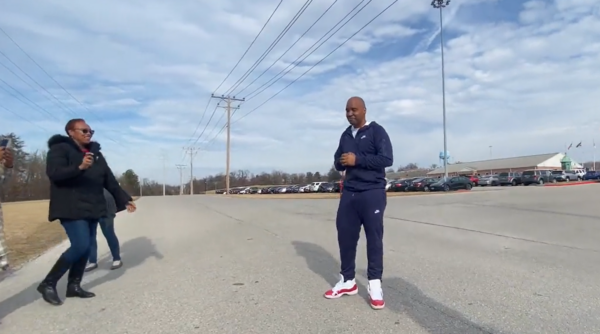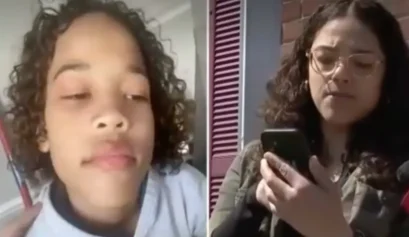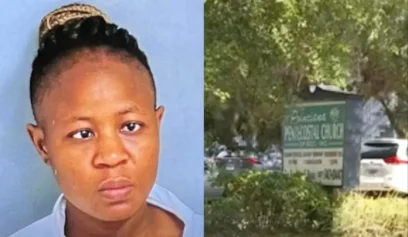After nearly three decades, a Maryland man, convicted as a teen of a crime he says he didn’t commit, will be coming home. A new law, passed in 2021, that allows inmates locked up as juveniles and who have served over 20 years to have their sentences reduced, aided in his being released.
On Thursday, Feb. 9, a Baltimore City Circuit Court judge approved a motion reducing Kenneth Bond’s life plus 60 years in prison sentence under Maryland’s Juvenile Restoration Act, the Prisons and Justice Initiative reports.

Bond was incarcerated at the age of 16, when he was convicted of the 1995 shooting death of Terrance Augusta McKoy, a Morgan State University freshman.
McKoy was standing at a bus stop in Northeast Baltimore when he was fatally injured by a gunman — believed at the time to be Bond.
For 27 years, Bond has maintained his innocence.
In 2018, Bond became the subject of a documentary produced by Georgetown University students, titled “Making an Exoneree.”
Marc Howard, director of Georgetown University’s Prisons and Justice Initiative, said after reviewing Bond’s file, he believed in his innocence.
“…Looking into his case,” Howard shared, “I believed in his innocence and I believed in him. And while we’re still hoping to clear his name, I’m overjoyed that Kenneth is finally home where he belongs.”
Three students were assigned to work on this case: Nada Eldaief, Cassidy Jensen and Julia Usiak.
The team found issues with the case, most noticeably the “shaky” testimony of the eyewitnesses and the ballistics used to connect Bond to the murder. Also, the trial lawyer Bond had as a minor never presented his alibi in court.
The case is still under review by Baltimore’s Conviction Integrity Unit, the oldest and most active CIU in the state. Since 2016, nine people have been exonerated by the investigative work of this agency.
The team saw an opportunity to get Bond home quicker with the JRA.
“The wheels of justice turn slowly,” said Howard. “Kenneth served 27 years, two months, and three days for a crime he didn’t commit. After looking into his case, I believed in his innocence and I believed in him. And while we’re still hoping to clear his name, I’m overjoyed that Kenneth is finally home where he belongs.”
While his release from the Jessup Correctional Institution does not mean he was exonerated, the Georgetown University PJI sees this as an epic win.
“Today Kenneth Bond was released after spending over 27 years in prison for a crime he didn’t commit,” the program tweeted. “A crowd of family, friends and #MakingAnExoneree staff and students from @Georgetown were there to celebrate his freedom. Welcome home, Kenneth!”
The Baltimore City State’s Attorney’s Office also supported the judge’s decision to grant him freedom under the JRA, saying, based on his pursuit of education inside of the prison and personal transformation, they can see “his potential to contribute positively to his community.”
Bond once said, “Just because they give you life plus 60, that doesn’t mean that your life is over. That means that your struggle begins.” He worked to change his life, despite never knowing if he would ever be released.
In 1999, Bond earned his GED. He went on to courses with many different colleges and universities, including Georgetown University through the Jessup Correctional Institution Scholars Program and the University of Baltimore’s Second Chance College Program.
Said to be an exceptional student, Bond was enrolling in additional college courses on the outside at the University of Baltimore, when he found out he would be released. Now he plans to continue to get his bachelor of arts degree and pursue graduate studies in psychology.
“This is only the start. They think that just by locking us away and throwing away the key, they’re doing away with us,” Bond said in a statement. “For individuals who are in prison in the same situation I was in, know that you build yourself, you work on yourself, you work on your character, you learn, and you go to school so that when you’re released you can make a positive impact.”
The very first thing Bond did when he got out of prison was communicate with his mother via FaceTime. The use of FaceTime, a form of technology introduced in 2010, might have been foreign to him; still, he didn’t skip a beat. As people hugged him and celebrated him, he said looking at the phone, “I’m free, Ma! I’m free!”


